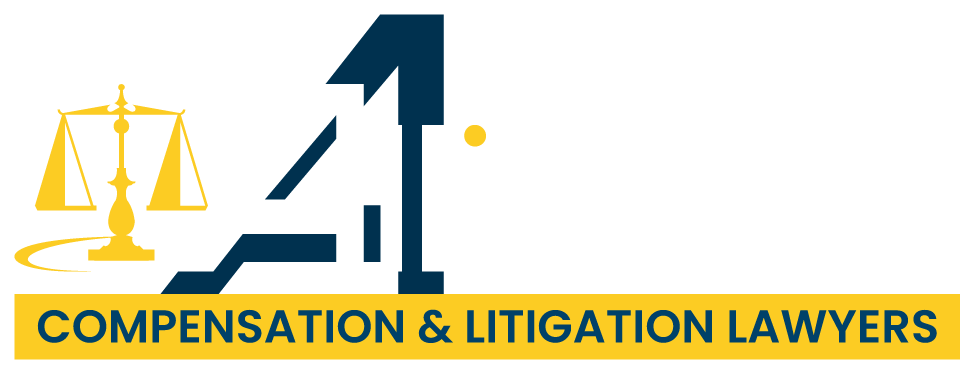Have you been referred for an independent medical examination?
A worker’s compensation claim involves a number of steps before the insurer delivers their decision. During this process, you may be referred for an independent medical examination. In this article, we’ll look at what this kind of appointment involves, and why it is required.
What is an independent medical examination (IME)?
An independent medical examination, also known as an IME, is an examination by an objective third party. It is an important step in the process of having a worker’s compensation claim approved. Essentially, it’s an examination carried out by a doctor who has not examined or treated you in the past.
Often, the doctor in question will specialise in the relevant injury that you have sustained, such as an orthopaedist for a back or neck injury. The doctor will then provide independent reports to whoever has requested the examination. Keep in mind that the specialist that conducts the examination is not allowed to treat you, or offer to take you on as a patient.
Why have I been referred to an independent medical examination?

Workers’ compensation has strict processes that need to be followed. The insurer must do their due diligence before approving a workers compensation claim. This means seeking an expert, third-party opinion.
Sometimes, you may be referred because there is not enough information available in your original doctor’s reports, or information is inconsistent. In other cases, your own legal representation may ask for an independent medical examination. They will do this to gather as much information and evidence as possible so that your claim has a higher chance of being approved and paid out.
There are five main reasons as to why you may be referred for an independent medical examination. They are:
- To determine work capacity
- To assess permanent impairment
- To understand your capacity for rehabilitation
- To help insurers determine liability
- To help your lawyer respond to insurer disputes.
We’ll look at each of these in more detail below.
To determine Work Capacity
You may have been referred for an independent medical examination to determine your work capacity. This means the specialist will deliver a report that assesses whether or not you can perform your usual tasks at work, or at least light duties. A report from your IME will determine the outcome of a work capacity decision.
To assess permanent impairment
An IME may be requested to assess whether or not you are permanently impaired. Some workplace injuries may leave you with permanent functional limitations which can prevent you from doing your job as normal. The doctor will assess the extent of the impairment and deliver a report to the requesting person.
To understand your capacity for a rehabilitation program
Rehabilitation is important after a workplace injury, and your ability to rehabilitate can impact your insurer’s decisions. An independent medical examiner can conduct an impartial review and prepare a report that identifies your capacity for rehabilitation. This may determine the extent of your worker’s compensation.

To help insurers determine liability
Liability of the injury is a crucial part of the insurer’s investigation into a workers comp claim in NSW. An IME will help to determine who is liable, whether that be the employer or the employee, or someone else. The doctor’s findings and report will then have a direct impact on the decision of the insurer, in terms of who is liable.
To help your lawyer respond to insurer disputes
The information that an IME can provide is invaluable to your lawyer. This information and detailed assessment provide evidence for responding to insurer disputes. This means that your insurer is not willing to pay out the claim. However, your lawyer will respond to disputes and continue to seek the best outcome for you, which may require an IME as additional evidence.
How to prepare for an Independent Medical Examination?
There are a number of things you can and should be doing to prepare for an independent medical examination. The law does require you to attend necessary examinations if your lawyer or insurer has requested this.
To prepare for the examination:
You will receive a letter about 10 days before the examination, which will contain all of the details about the appointment. It will also explain why the examination has been requested.
Once you receive the letter, call to confirm the appointment. If you need to reschedule the examination, it may be possible, and you should tell the requesting party as soon as you can. On the same call, you should also let them know if you have any needs, such as disabled access or an interpreter.
On the day of the examination:
Make sure you take all of your test results and radiographic films, including X-rays, MRIs, CTs, Ultrasounds, and any reports. All of these will help the examining doctor make a more thorough and accurate assessment.
You should wear comfortable clothes to the appointment and give yourself plenty of time to get there so that you are not late. Extra time is also important because the receptionist will probably need to take down your details. Make sure you have any important dates and names ready.
If you need some support on the day, it’s okay to take a friend or family member along with you. If you want them to accompany you to the appointment, you will need the approval of the doctor. However, they cannot interpret or take questions from the examiner during the appointment.
Keep in mind that this goes both ways – if the examiner requires a third party to be present, they must seek your permission first. Your doctor also needs to seek your consent if they wish to record the examination, and you can say no to this request.
What happens during an Independent Medical Examination?
During your medical examination, your doctor will ask plenty of questions about your injury. They will ask how the injury occurred, what the extent of the injury is, and how the injury is affecting you now. The examining doctor will also ask you about your medical and work history, and whether you are receiving any treatment for the injury.
It’s important that you provide all of the requested information. It’s okay if you can’t remember everything, but make sure you answer all the questions you can, as clearly as possible.
The doctor will conduct a thorough physical assessment, in a professional and respectful manner. They will examine the area of the injury, and maybe other parts of the body to see how the injury is affecting these areas. The doctor will always maintain your modesty and will not ask you to do anything unsafe.
Do keep in mind that if you decline to provide any information or participate in any part of the assessment, it may be noted in the report. However, if you do not feel comfortable or safe, you may decline on this basis.
Do I need to attend an IME?
It is required by law that you attend your IME. If you do not, your insurer may deny your worker’s compensation claim. An IME is a crucial part of the worker’s compensation claim process and is only requested when absolutely necessary. Therefore, you must attend. If you do need to reschedule your appointment, it may be possible. However, this will require you to communicate with the party who requested the appointment.
Do I need to pay for an IME?
The insurer will cover the examination expenses if they are the ones referring you. In instances where your legal representative initiates the referral, they might shoulder the cost, although there are situations where you might need to pay initially and then be compensated by the insurer at a later time.
If the Independent Legal Assistance and Review Service (ILARS) is assisting you with an insurer dispute and directs you to an IME, they will handle the payment.
It’s important to note that the law safeguards you from undergoing unnecessary medical evaluations. Reimbursement is typically limited to a single IME report, except in circumstances where you have sustained multiple injuries, permitting the acquisition of one report from each relevant medical field.
What if I’m asked to attend more than one IME?
It’s not uncommon to be referred to another IME. This often happens when an injury continues for a long period of time. Insurers or your lawyer may require up-to-date evidence and reports, and so will request another IME. You always have the right to ask why, if you are being referred for another appointment.
The State Insurance Regulatory Authority (SIRA) states that additional requests for an independent medical examination must fulfill at least one of the following requirements:
- The employer or insurer has evidence that the extent of your injury has changed or resolved
- The employer/insurer has a request for, or evidence of, a material change or need for material change in the manner or type of treatment
- You are making a claim for permanent impairment or work injury damages
- You request a review after receiving a notice (issued under section 78 of the 1998 Act) that includes additional medical information that the employer or insurer is asked to consider
- Your last IME was not completed successfully
- It has been at least six months since the last IME required by the employer/insurer
- The referrer can provide significant reasoning for the need for a referral in a shorter timeframe. This reasoning must be documented in the claim file and provided in the written advice to the worker regarding the referral.
What if there are problems during my appointment?
If there are any issues during your appointment, you should let your doctor know right away. This can include feeling uncomfortable, experiencing pain, or something else. If the examining doctor is not receptive to your complaints, notify the person who referred you to the IME as soon as possible.
Making a complaint
If you would like to lodge a complaint about your independent medical examination, you can do so in a few different ways. This includes:
- Lodging a complaint to your referrer, which may be your insurer or your lawyer
- Contacting the SIRA Customer Service Centre on 13 10 50
- Lodging a complaint via the NSW Medical Board or Australian Health Practitioner Regulation Agency
- Contacting your union or the Health Care Complaints Commission.
How Alliance Compensation & Litigation Lawyers can help
If you are requested to attend an independent medical examination, but you’re not sure what that entails, we’re here to help. At Alliance Compensation & Litigation Lawyers, we specialise in worker’s compensation claims in NSW, and we handle all of the legal aspects of your claim. Your compensation is our reputation.
Click here to get in touch with us today. Alternatively, you can call us on (02) 8764 1776 or email us at refer@alliancecomplawyers.com.au.
Related articles:
- Make sure to read our Workers Compensation Guide for more information on Workers Compensation
- You may also want to read our article on Work Capacity Assessments because they could require you to undertake an IME.


















